Pages of specimen, prints of Qiushi
In the Zhejiang University College of Pharmaceutical Sciences, there is the Herbarium of Medicinal Plants collecting over 5,000 plant specimens of great medical value and historical significance. As William Blake’s beautiful poem goes, “to see a world in a grain of sand, and a heaven in a wild flower.” Today let’s trace Qiushi Spirit from those silent storytellers.
Specimen: a world in a wild flower
Gathered from regions of mountains, forests and wetlands in Zhejiang Province, the collections unroll the panorama of spectacular landscapes in Zhejiang Province. There is Nothodoritis zhejiangensis Tsi., a national rare and endangered plant gathered in the corner of far forest wilderness in Ningbo City; there is Habenaria sagittifera Rchb.f collected from grassland on mountain top in Quzhou City; there is also Platanthera tipuloides Lindl. found in the wetland of a valley in Lishui City. From the bottom of valleys to the top of mountains, the plant specimens provide an abundant resource for researchers to study the ecological environment of Zhejiang Province.
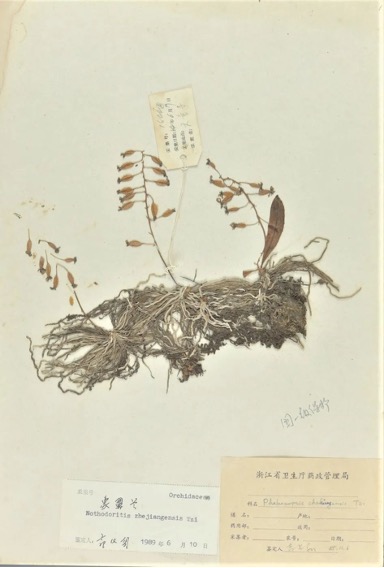
Nothodoritis zhejiangensis Tsi.
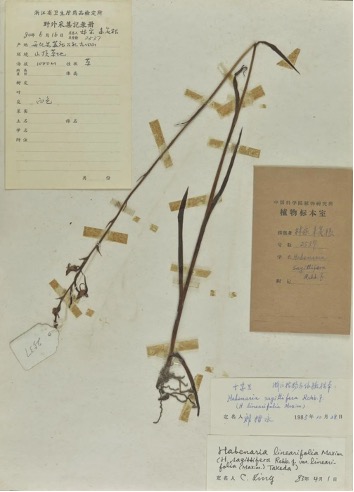
Habenaria sagittifera Rchb.f
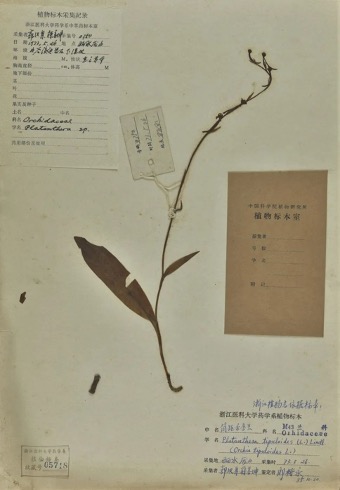
Platanthera tipuloides Lindl.
Just in the family of Orchidaceae, the herbarium has gathered 326 specimens, 50 of which are national rare and endangered. Those specimens accurately record the rich medical resources, sketch a fabulous world of natural vegetation and meanwhile provide exhaustive references for the relative cultural study.
Tags: notes for Qiushi Spirit
Recently students from school of pharmacy rearranged the specimens in the herbarium. Casting a backward glance on the time-worn specimens of half a century, they retrieved Qiushi spirit condensed into the pages of specimens and patches of notes.
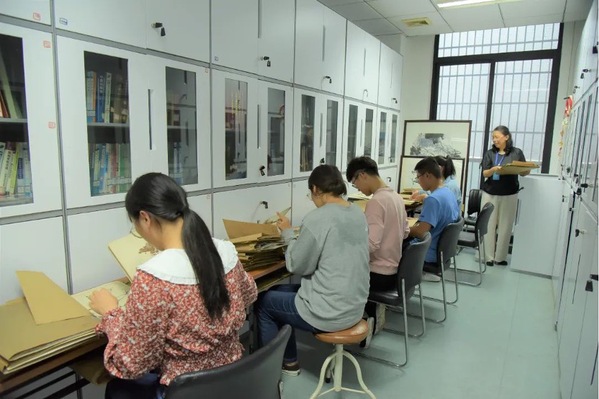
Students arranging the specimens under instruction
Few things can hold eternity in an instant, but these specimens made it. Among the collections, there is a Dioscorea spongiosa specimen patched with five notes. The confirmation of its name is quite an experience of twists and turns, where the unremitting Qiushi Spirit of ZJU scholars found accurate expression.
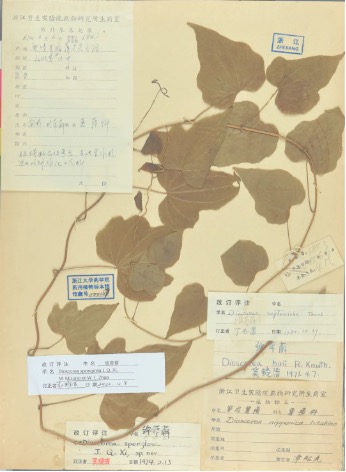
Dioscorea spongiosa J.Q. Xi, M. Mizuno et W. L. Zhao
In the 1980s, Prof. XI Jingqing and her student ZHAO Weiliang found that Dioscorea spongiosa in Zhejiang was different to the standard sample. They stuck to this clue and assumed Zhejiang Dioscorea spongiosa a new species. In 1987, they published their findings and evidences, only to be disappointed by the fact that this new Dioscorea spongiosa was not acknowledged since the standard sample did not exist in China. After positive communications with oversea scholars, they got access to the standard one in Japan, then conducted thorough analysis, eventually verified the value of Zhejiang Dioscorea spongios and established its status in taxonomic. The renewed information not only added an accurate note to this specimen, but also demonstrated the very core of Qiushi Spirit: always seeking truth with constant efforts. It is their unflagging spirit to pursue truth regardless of all obstacles that grounds the progress of their study as well as every great stride of this university.
Commitment extends all the way
The history of the Herbarium of Medicinal Plants can be traced as early as 1920, which was then Zhejiang Provincial Medical School. Many of the specimens have been used for nearly a century, in the courses like Medicinal Plants and Pharmacognosy and From Shennong Herbal Medicine to Modern Chinese Medicine. During this period, what has been passed on is far more than specimens, but also the enduring commitment to the pharmaceutical sciences and the clarity of passion for research.
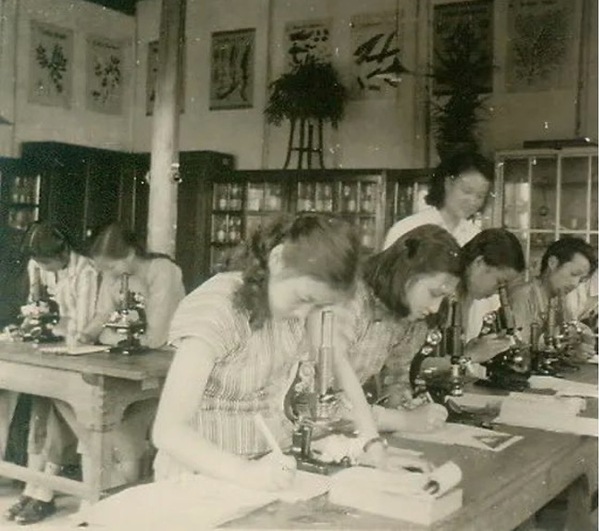
Students having pharmaceutical botany class in the 1950s
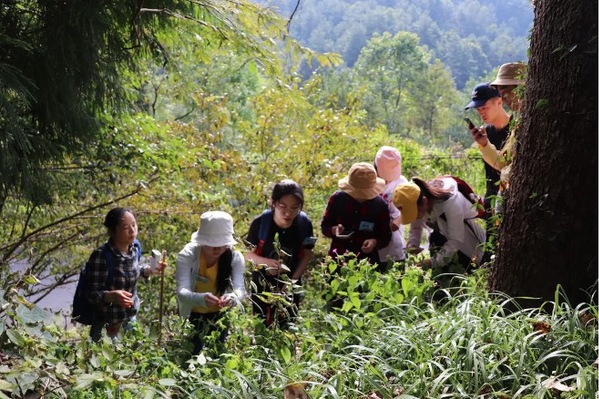
Students conducting field study in West Tianmu Mountain, Hangzhou
From classroom experiments to field study, generations of scholars and students consolidate their basic skills to memorize plants, explore the medicinal value and practice the learning in the thick forest and mountains, in this way realizing their motto to travel thousands of miles and read thousands of books. Specimen paper may be faded, but this commitment will extend all the way into future.
Writers: XU Xiao, ZHOU Yichen, XU Juanhua, SHI Shuiyang
Translator: ZHANG Jinmei
Editor: TIAN Minjie